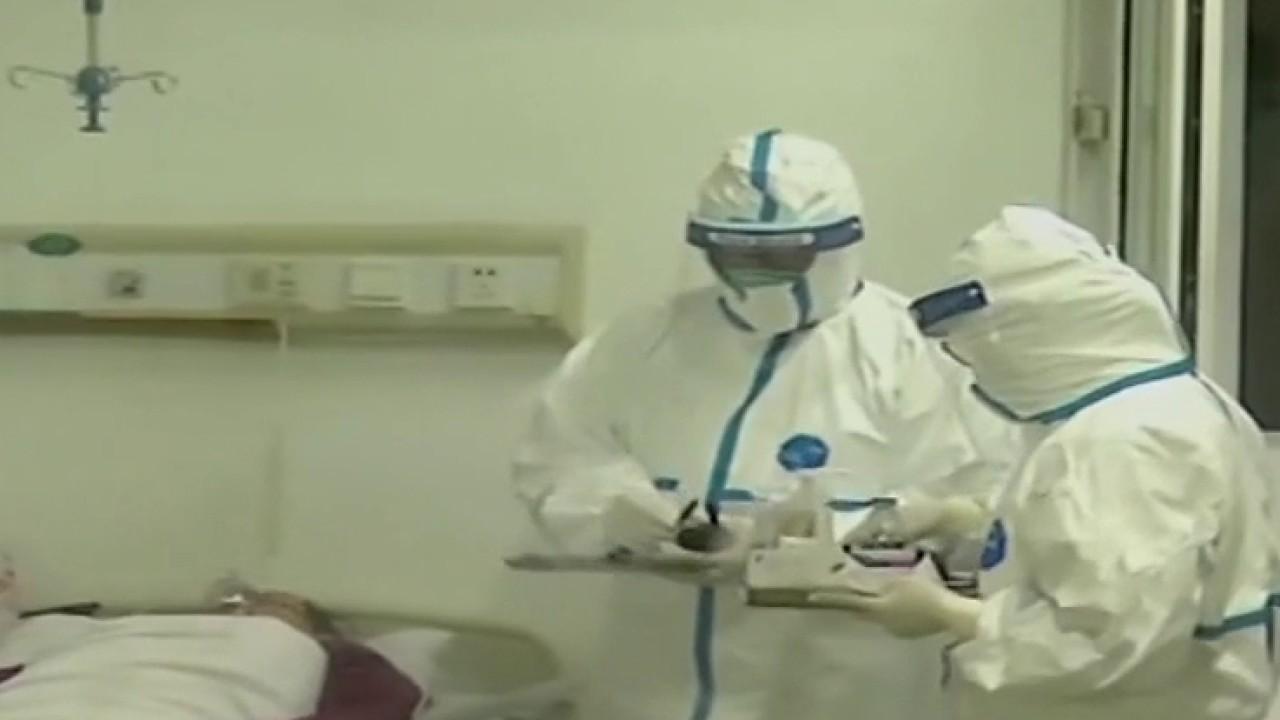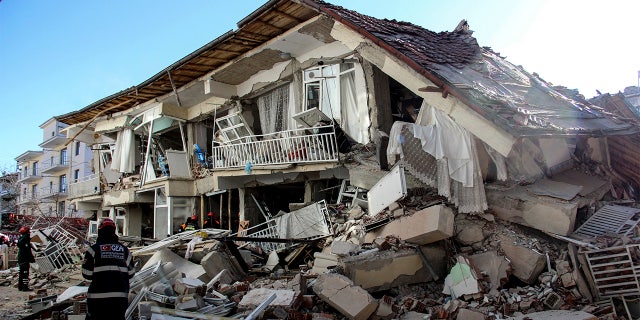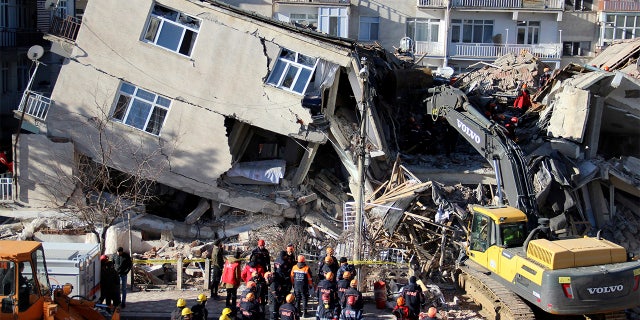
President Donald Trump has said the United States will not lift sanctions on Iran in order to enter negotiations with it, in a response to the Iranian foreign minister who suggested Tehran was still willing to talk on the condition Washington "correct[ed] its past" and removed a series of tough economic measures.
There has been growing friction between the two longtime foes since 2018 when Trump pulled his country out of a landmark nuclear deal signed between Iran and world powers. The US has since reimposed crippling sanctions on Iran's economy while calling for negotiations on a new accord that also addressed Tehran's ballistic missiles programme and its support for regional armed groups.
More:
The tensions reached the highest levels in decades earlier this month after the US assassinated top Iranian General Qassem Soleimani in a drone strike in Baghdad. Iran responded by firing missiles at US targets in Iraq on January 8, but the retaliatory strikes did not cause any fatalities and Trump signalled the US would not respond militarily and instead move ahead with more "punishing economic sanctions".
On Friday, Iranian Foreign Affairs Minister Mohammad Javad Zarif told Germany's Der Spiegel magazine that he would "never rule out the possibility that people will change their approach and recognise the realities" when asked about possible negotiations with the US following Soleimani's killing.
"For us, it doesn't matter who is sitting in the White House, what matters is how they behave," he said in the interview published on Saturday, reiterating his country's demand that the US would have to first lift the sanctions before any new negotiations begin.
"The Trump administration can correct its past, lift the sanctions and come back to the negotiating table. We're still at the negotiating table. They're the ones who left," Zarif continued, before adding that "the day will come" when the US "will have to compensate for inflicting "great harm" on Iranians.
"We have a lot of patience," he said.
In Washington, Trump said in a Twitter post late on Saturday, "Iranian Foreign Minister says Iran wants to negotiate with The United States, but wants sanctions removed," and added: "No Thanks!".
Zarif hit back on Sunday by tweeting an excerpt from the interview with Der Spiegel.
"@realdonaldtrump is better advised to base his foreign policy comments & decisions on facts, rather than @FoxNews headlines or his Farsi translators," Zarif said in the tweet with the interview excerpt.
.@realdonaldtrump is better advised to base his foreign policy comments & decisions on facts, rather than @FoxNews headlines or his Farsi translators
To be better informed, he can read my entire interview (in English) https://t.co/eZR8NzuWXV
Too many words? Then just read this: pic.twitter.com/URkbUll49P
— Javad Zarif (@JZarif) January 26, 2020
Meanwhile, on Saturday, Ali Asghar Zarean, an aide to Iran's nuclear chief, said the country's enriched uranium stockpile has exceeded 1,200 kilogrammes (2,646 pounds), which is far beyond the 2015 nuclear deal between Tehran and world powers allowed.
"Iran is increasing its stockpile of the enriched uranium with full speed," he said. The claim has not been verified by the United Nations's nuclear watchdog, the International Atomic Energy Agency (IAEA).
Under the 2015 agreement, formally known as the Joint Comprehensive Plan of Action (JCPOA), Iran agreed to limit its enrichment of uranium under the watch of UN inspectors in exchange for the lifting of sanctions.
In reaction to Washington's unilateral withdrawal from the deal and its reimposition of sanctions, Iran has gradually rolled back its commitments. On January 5, days after the US drone strike that killed Soleimani, Tehran announced it would no longer abide by any of the JCPOA's limitations to its enrichment activities.
In November, the IAEA said Iran's stockpile of low-enriched uranium had grown to 372.3kgs (821 pounds) as of November 3. The nuclear deal limited the stockpile to 202.8kgs (447 pounds).
Iran has routinely promised to begin enriching its stockpile of uranium to higher levels closer to weapons-grade if world powers fail to negotiate new terms for the nuclear accord following Washington's moves.
The other signatories to the JCPOA - Germany, France, the United Kingdom, China and Russia - have been struggling to keep it alive.
SOURCE: Al Jazeera and news agencies
https://news.google.com/__i/rss/rd/articles/CBMiXmh0dHBzOi8vd3d3LmFsamF6ZWVyYS5jb20vbmV3cy8yMDIwLzAxL2lyYW4temFyaWYtaGl0cy10cnVtcC10d2l0dGVyLXBvc3QtMjAwMTI2MDkzNDA1MzQ4Lmh0bWzSAWJodHRwczovL3d3dy5hbGphemVlcmEuY29tL2FtcC9uZXdzLzIwMjAvMDEvaXJhbi16YXJpZi1oaXRzLXRydW1wLXR3aXR0ZXItcG9zdC0yMDAxMjYwOTM0MDUzNDguaHRtbA?oc=5
2020-01-26 10:58:00Z
52780568185529







